Part I: Cadres in the new era of national development: New roles and requirements
From the theoretical vision and practical summary of more than 90 years of leading the Vietnamese revolution, it can be affirmed that: All victories of the Party and the nation are associated with the selection, training and promotion of a team of cadres with steadfast political will, sharp intelligence, pure ethics and high practical organizational capacity. That team of cadres is the "center of the capacity to govern and administer the country", and at the same time is the decisive factor in realizing the aspiration to develop a prosperous and happy country.
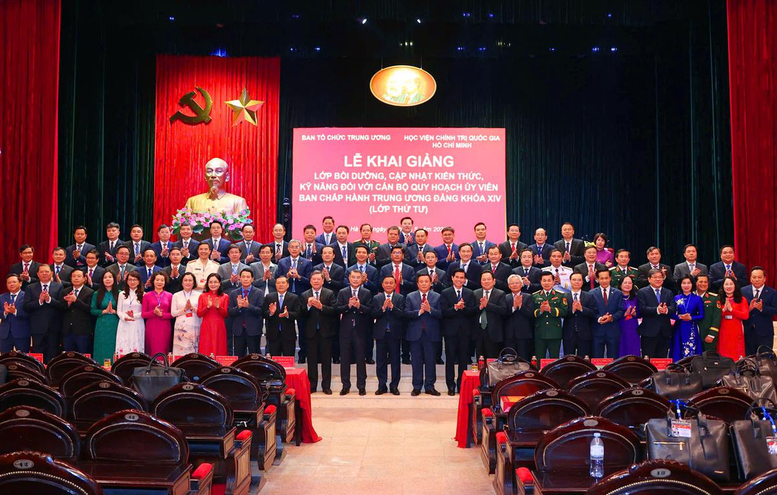
Opening ceremony of the Training Course to update knowledge and skills for planning cadres of the 14th Party Central Committee on May 26, 2025
The role of staff in the new context
Cadres – the center of national governance and management capacity
Our Party affirms: "Cadres are the decisive factor in the success or failure of the revolution; cadre work is the key step in Party building" [1] . This affirmation not only demonstrates a profound theoretical vision but also summarizes the practice of more than 90 years of leading the Vietnamese revolution: all victories of the nation are associated with our Party's selection, training and promotion of cadres with political mettle, intelligence, ethics and practical organizational capacity.
In Ho Chi Minh's thought, "Cadres are the root of all work; the success or failure of work depends on good or bad cadres" [2] . Here, he does not consider cadres as just "implementers", but as the "root" - the foundation that determines the survival of all policies and strategies. If the Party is the helmsman, then cadres are the rudder, the engine, transforming the Party's revolutionary will into revolutionary action among the people.
Today, as the country enters the era of global integration, digital transformation and knowledge economy , the role of officials is increasingly systematic and strategic. Officials are no longer just "resolution enforcers", but must become "policy architects", change managers, institutional designers, data operators, and national connectors. The "official - executive" model needs to shift to the "official - change creator" model, where political qualities and modern administrative capacity blend together, creating measurable effectiveness and verifiable social trust.
With that role, cadres are the measure of the Party's governing capacity. A correct policy but weak cadres will find it difficult to implement; on the contrary, a team of dedicated, capable and responsible cadres will turn big goals into concrete results. General Secretary Nguyen Phu Trong has repeatedly emphasized: "With good cadres, no matter how difficult a policy is, it will be successful; with poor cadres, correct policies will not be implemented" [3] . This is a profound reminder of the dialectical relationship between policy - people - results.
Cadres are not only the "link" in the administrative apparatus, but also the driving force of reform, the center of modern governing capacity, and determine whether our Party has the strength to lead the nation to overcome global challenges.
Cadres and officials transform "Party ideas" into "policy life"
In the ruling value chain, cadres are the "transformers" - turning the Party's ideas (political guidelines and policies) into specific policies, action programs and practical results. If "Party ideas" is the strategic vision, then "policy life" is the extent to which policies enter life and bring practical benefits to the people. The gap between these two factors is narrowed or widened depending mainly on the quality of the cadre team.
At the strategic level, officials take on the role of institutional designers, policy makers and strategic advisors – the ones who “draw the development map” for the country. At the implementation level, officials are the ones who operate the public service value chain, from planning – inter-sectoral coordination – public service provision – inspection – supervision – evaluation. In the context of digital transformation, the criterion of “completing work” is no longer measured by signing enough documents, but by specific, measurable impacts on people and businesses. Therefore, the effectiveness of officials is the quality of national governance.
Resolution No. 26-NQ/TW dated May 19, 2018 of the Central Executive Committee on focusing on building a contingent of cadres at all levels, especially at the strategic level, with sufficient qualities, capacity, prestige, and equal to the task, emphasized: "Building a contingent of cadres, especially at the strategic level, is a top priority task, an important work of the Party, which must be carried out regularly, cautiously, scientifically, closely and effectively. Investing in cadres is investing in long-term, sustainable development [4] ".
That assertion shows that policy effectiveness is a mirror reflecting the qualities, capacity and prestige of cadres. A team of cadres who are good at organization, close to the people, responsible and have vision will ensure that development programs are implemented consistently, creatively, flexibly and in accordance with reality. On the contrary, if cadres lack courage, capacity and attachment to the people, then even if the policy is correct, it will be difficult to turn it into material strength in social life.
Cadres – the pillars of power integrity
In the context of the fight against corruption and negativity being promoted and becoming a permanent political movement, cadres play the role of both the subject and the "safety valve" of power. If power is not controlled, it will lead to degeneration, while the integrity of cadres is the "moral fence" protecting the Party, protecting the political prestige and legitimacy of the system.
Our Party has established an institutional integrity corridor with a series of important and synchronous regulations, demonstrating modern governance thinking and high political determination in building a clean and strong Party[5]. These documents clearly demonstrate our Party's new power governance thinking: Power must be controlled by institutions, and creativity must be encouraged by trust.
When this mechanism operates synchronously, cadres have a "legal safety zone" for innovation, and at the same time have an "ethical forbidden zone" to avoid falling into individualism, opportunism, and profiteering. That is the foundation of institutional integrity - a harmonious combination of rule of law and rule of ethics, between Party discipline and the driving force of innovation.
Cadres today need to understand that: Integrity is not only a personal virtue, but also an institutional value; not only the purity of assets, but also the transparency in motives, goals and public service actions. When integrity becomes the standard of action, the trust of the people - the Party's most valuable "political capital" - is consolidated and multiplied. That is the moral pillar that protects the Party's governing capacity and leadership prestige in the new era.
Cadres – "institutional advantage" in global competition
When material resources, natural resources and cheap labor are gradually exhausted, a country's development advantage no longer lies in natural resources , but in institutional capacity and the quality of its staff. These are strategic resources, decisive in the country's global competitiveness.
Cadres are "special social capital" - an irreplaceable resource, a crystallization of intelligence, ethics and political courage. In the context of deep international integration, each cadre not only represents the national image, but also reflects the national governance capacity and political culture of the ruling Party. A cadre with weak capacity, lacking ethics, and limited international understanding can damage the people's trust, the organization's reputation and the country's position. On the contrary, a cadre with courage, intelligence and global vision will open up new development space, putting the Party's integration policy into practice.
Cadres in the new era must not only "understand the law - understand the people - understand the work", but also be proficient in data - proficient in technology - proficient in international dialogue. They must have the capacity to lead reforms, coordinate inter-sectoral and inter-regional affairs, and effectively handle global challenges such as climate change, non-traditional security, energy transition, and digital economy. That is the new standard of modern cadres - the link between "the Party's soft power" and "the nation's hard power" .
Our Party clearly defines: "Investing in cadres is investing in long-term, sustainable development" [6]. Cadres are therefore seen as "institutional advantages" - the central factor determining the country's ability to integrate, creativity and development endurance. Building a cadre team with "quality - capacity - prestige - integrity - efficiency" is not only an urgent requirement of the present, but also a long-term strategy to ensure the capacity to govern and realize the aspiration to develop the country by 2030, with a vision to 2045.
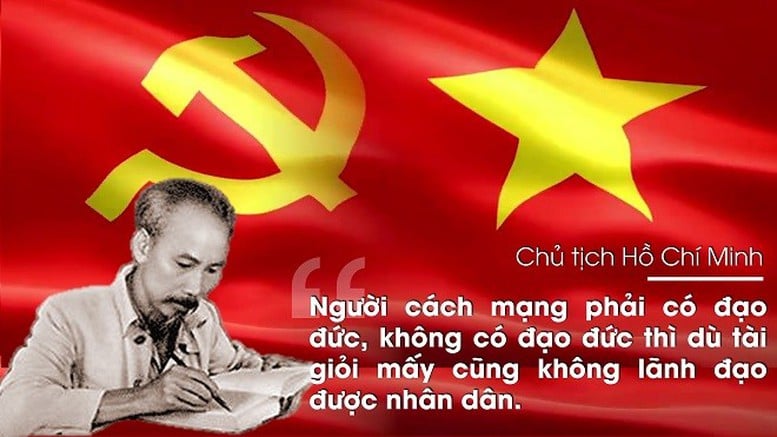
Current status of staff and requirements
Positive changes – the foundation for development
In recent years, the work of cadres has achieved remarkable results. Overall, the cadres at all levels over the past 40 years have grown and developed in many aspects, with their quality improving day by day; the majority of cadres still maintain their political stance, steadfast ideological stance, ethics, simple and exemplary lifestyle, actively participate and make important contributions to the country's innovation, have a sense of training and strive to complete assigned tasks. The number and quality of cadres have increased significantly (in 1997, the whole country had 1,351,900 cadres and civil servants; in 2007, there were 1,976,976 cadres and civil servants; by 2017, the total number of cadres, civil servants and public employees was: 2,726,917 people; currently there are 2,234,720 people), the structure is becoming more and more reasonable[7].
The cadre work has had many positive and effective changes; closely followed the political tasks and requirements of building a cadre team suitable for each revolutionary stage, and achieved many important results. Specifically:
- Cadre assessment is a prerequisite and important step in cadre work, which has been implemented more closely and substantially; the content, process and methods have been gradually innovated, democratically and objectively, linked to assigned responsibilities and tasks, and to the implementation of resolutions and conclusions on Party building and rectification, on studying and following Ho Chi Minh's ideology, morality and lifestyle, contributing to the good implementation of planning, training, fostering, arranging, assigning and using cadres.
- Cadre planning is an important and regular step in cadre work, carried out synchronously and uniformly[8] according to the motto "dynamic" and "open"; one planned position has no more than 03 people, one planned person has no more than 03 positions as a basis for training, fostering, rotating, arranging and using cadres; the quantity and quality of planned cadres are improved, basically ensuring 3 age groups; creating a source of planning young cadres, female cadres, and cadres from ethnic minorities is given more attention.
- The Central Committee[9] and Party committees and organizations have focused on leading, directing and organizing the implementation of the work of rotating cadres, achieving many positive results, contributing to the training, fostering and training of cadres in practice[10] associated with the implementation of the policy of arranging Party committee secretaries and a number of leadership and management positions that are not local people.
- The work of training and fostering cadres has had many positive changes, contributing to improving the qualifications and knowledge of all aspects of the cadre team[11]. The content of the program and the form of training and fostering have been gradually innovated; more attention has been paid to fostering, updating new knowledge and fostering according to job title and position standards, closely following the requirements of the tasks, linking domestic training and fostering with research and study abroad in a more practical and effective way.
- The work of selecting, arranging, appointing, and introducing candidates for leadership and management positions at all levels has many innovations, and is increasingly more complete with more synchronous and strict regulations, rules, and procedures...; the majority of elected and appointed officials meet the requirements and tasks, and perform well the assigned duties and responsibilities. The election within the Party is strictly carried out according to the Party's Election Regulations, which have been supplemented and amended over the terms, promoting democracy and upholding the Party's discipline[12]; actively decentralizing cadre management, more clearly defining the authority and responsibility of the collective and individuals, especially the individual leader in cadre work.
- Personnel policy work; organization of personnel organization work has been gradually innovated; staff advising on organization and personnel work at all levels and sectors have matured, basically meeting the requirements and assigned tasks.
- The work of Party inspection, supervision and discipline has been strengthened; Party discipline and order and State laws have been promoted; inspection of the implementation of the Party Platform, Statutes and resolutions has been combined with inspection and supervision of sensitive areas, areas prone to violations and negativity, and issues of public concern, concern to cadres, Party members and the people[13].
These results affirm that our Party is forming a generation of cadres who are "both red and professional", knowledgeable, adaptable, dedicated, creative and dedicated to serving the Fatherland. This is the foundation to ensure the Party's governing capacity and the country's sustainable development in the new period.
Limitations and challenges – "bottlenecks" that need to be resolutely removed
Although the cadre team has grown in many aspects, in general, the cadre team is large but not strong. The proportion of young cadres[14], female cadres[15], and ethnic minority cadres[16] has not met the requirements; the structure of the cadre team among professions, fields, and regions is not really reasonable. A number of cadres have declined in political capacity, wavering in stance and viewpoint, drifting away from the Party spirit and the people. Some cadres have low prestige, degraded in ethics and lifestyle, lack of exemplary behavior, degenerate, corrupt, wasteful, negative; lack of responsibility, words do not match actions, drifting away from the principles of democratic centralism, self-criticism and criticism. In some places, there is a lack of internal solidarity, violations of discipline, order, and laws; the number of cadres disciplined and dealt with by law tends to increase.
Although the cadre work in recent times has achieved many important results, contributing to consolidating and improving the leadership capacity and fighting strength of the Party, there are still limitations and weaknesses that need to be frankly acknowledged, analyzed and have solutions to overcome more synchronously and effectively in the coming time. These are:
- Some aspects of personnel work are still slow to be innovated; processes and regulations in some areas are not really complete, there are still loopholes, they are being exploited, affecting objectivity, impartiality and management effectiveness.
- The work of planning cadres in many localities and units has not really ensured strategic and comprehensive nature, lacking connection between levels and sectors; still showing signs of being closed, local, scattered, not fully implementing the motto of "dynamic" and "open". Although the work of training and fostering cadres has had positive changes, in general, innovation is still slow, not closely linking theory and practice, training with planning and job position requirements; content and methods are still heavy on communication, not focusing on training practical skills and handling situations.
- The rotation, arrangement and placement of cadres, including the policy of arranging some key leadership positions that are not local people, still has shortcomings and has not achieved the set goals. In some places, the work of appointing and introducing candidates for election, although following the formal procedures, has not ensured "the right person, the right job". There has even been a situation of appointing cadres who do not meet the standards and conditions, showing signs of localism, familiarity and "cronyism", causing resentment among cadres, party members and public opinion.
- Recruitment and examinations for promotion of civil servants and public employees still have many limitations, the quality is not uniform, and some places still have violations and negativity. The policy of attracting and promoting talents is still slow to be implemented, lacking strong and practical mechanisms and policies; the results of attracting young intellectuals, good experts, and highly qualified people have not met the requirements.
- Personnel policies between levels and sectors still lack unity and synchronization; salary, housing, emulation and reward policies have not really created strong motivation for cadres to feel secure in their work and make long-term contributions. In particular, the mechanism to protect dynamic, creative cadres who dare to think, dare to do, dare to take responsibility, dare to face difficulties and challenges, and act decisively for the common good has not been fully institutionalized, and has not become a solid "shield" to encourage innovation and creativity among the current cadres.
Although the mechanism for controlling power in personnel work has been paid attention to, supplemented and perfected through many documents and regulations of the Party and the State, it is still not really specific, synchronous and the implementation efficiency is still low. In some places, inspection, supervision, detection and handling of violations have not been carried out regularly and promptly, lacking deterrence, leading to lax management, abuse of power and abuse of power for personal purposes.
Notably, the situation of "buying positions, buying power", "buying planning", "buying rotation", "buying degrees", "buying rewards", "buying titles", and even "buying crimes" is still complicated, causing outrage in public opinion. Some cases show signs of taking advantage of loopholes in procedures and regulations to lobby, influence, and intervene against principles, distorting criteria and standards in personnel work. More worryingly, this situation not only occurs at the grassroots level but also manifests itself in a number of cadres holding high-level leadership and management positions, directly affecting the prestige of the Party organization and the people's trust in the Party.
This reality shows that although the mechanism for controlling power in personnel work exists, it is not strong enough to "lock" power with responsibility, and has not linked authority with obligations and specific sanctions. In some cases, the handling of violations is still deferential, evasive, and not really strict; the work of preventing, detecting, and combating the abuse of position and power has not been implemented proactively, systematically, and resolutely.
The limitations, weaknesses and negative manifestations in personnel work in recent times stem from many causes, both subjective and objective, including the following main causes:
Firstly , in some Party committees, agencies and units, the research, study and implementation of Party resolutions and regulations, State policies and laws on personnel work have not been carried out regularly, deeply and seriously.
Second , a number of Party committees and heads of agencies, units and localities have not fully fulfilled their responsibilities in personnel work. In some places, the principle of democratic centralism has not been respected, even showing signs of authoritarianism, deep intervention in the planning, rotation, appointment and promotion of cadres, reducing the objectivity, fairness and leadership effectiveness of the Party organization.
Third, the work of evaluating cadres still faces many difficulties due to the lack of specific criteria and standards for each position, especially for heads of Party committees, authorities, agencies and units.
Fourth, the mechanism for people to participate in building the Party's cadre team is still limited, there is no effective form to promote the right to supervise, introduce and recommend virtuous and talented people; at the same time, there is no mechanism to periodically collect opinions of trust and satisfaction index of people for the heads of Party committees and authorities at all levels, causing feedback from the grassroots to not really become an important information channel in evaluating cadres.
Fifth, although the Party has issued many regulations and clear directives on inspection, supervision, control of power and prevention of abuse of power and position, the implementation in some places is still formal, lacking in determination, and effectiveness and efficiency are not high. Internal inspection and supervision work is not regular and lacks initiative, while sanctions for violations are not strong enough to deter.
Sixth, the system of regulations on authority, individual and collective responsibility in personnel work still has gaps, and has not clearly defined the responsibilities of organizations and individuals in each stage of consulting, introducing, recommending, arranging and appointing cadres.
New requirements for cadres in the period of industrialization - modernization, international integration and digital transformation
First – Firm political stance and pure revolutionary ethics
In the context of a market economy and deep international integration, the impact of individualism, opportunism and pragmatism is increasingly strong. Therefore, our cadres must "stand firm in the face of all temptations", remain pure, be absolutely loyal to the Party, and put the interests of the people and the nation above all else . The practice of cadre work in the 2021-2024 period shows that localities with leaders who are steadfast in character, exemplary in ethics, and decisive in action (such as Quang Ninh, Bac Ninh, and Binh Duong) have all created clear changes in socio-economic development and strengthened people's trust.
Second – Professional competence, strategic thinking and modern management skills
Officials in the digital transformation era must understand technology, know how to analyze data, use information to make policies, and have the ability to " design evidence-based policies". Currently, more than 60% of department and sector leaders in Vietnam have received postgraduate training, of which nearly 15% have specialized degrees in information technology or digital transformation [17] . Pioneering localities such as Da Nang, Quang Ninh, and Thua Thien - Hue have implemented comprehensive digital government, closely linking the digital capacity of officials with the effectiveness of public service delivery, demonstrating clear progress in "government that creates, acts, and serves the people".
Third – Spirit of service and accountability
Party officials must consider Serving the people is the highest honor. Work efficiency cannot be measured by reports or slogans, but by the satisfaction of the people, businesses and the specific results of public service. Therefore, today's officials must shift from the mindset of "working for the people" to "serving the people", putting the people at the center of all decisions. This is the key criterion to evaluate public service ethics and the effectiveness of exercising political power.
Fourth – Discipline, professionalism and clear personal responsibility
In the modern political system, Party discipline is a "culture of responsibility". Each cadre needs to voluntarily take personal responsibility for the results of their work, without blaming or avoiding. Therefore, it is necessary to continue to build an honest and transparent working environment, in which responsibility is quantified by results and ethics is verified by actions.
Thursday – Global mindset, ethical integrity and innovation
In the context of digital economy and international integration, cadres must not only "manage domestically", but also " dialogue with the world". They need global thinking, foreign language skills, international law, international political culture, and especially integrity and strong political will to protect national interests on the global chessboard. According to the Vietnam Reform and Development Forum Report 2024, the integration capacity of young Vietnamese cadres has increased by 15% compared to the 2016-2020 period in terms of foreign language skills, international project management and bilateral cooperation[18]. This is a positive signal, but also requires training a generation of global cadres - knowledgeable about the rules of the game, but maintaining "Party quality" and Vietnamese ethics .
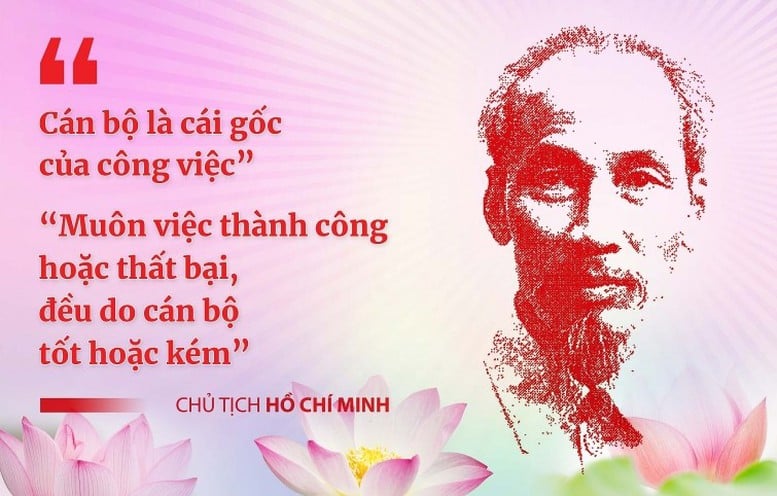
Core elements in building a new era of cadres
Quality – Capacity – Prestige – Integrity – Efficiency
These are the five fundamental pillars that crystallize the model of a "new-age cadre" - a person who has both political courage and modern management capacity, and enough prestige to gather and lead social trust. These five factors are closely related to each other: character is the root, capacity is the trunk, prestige is the canopy, integrity is the root, and efficiency is the fruit - forming the "ethics - capacity - results cycle" of a cadre.
Political and ethical qualities are the solid foundation and root of revolutionary cadres. Cadres in the new era must be absolutely loyal to the Party, steadfast in the goal of national independence associated with socialism, and have firm faith in the path chosen by the Party, Uncle Ho and the people. Each cadre must put the interests of the nation, the people, and the people above all else; deeply imbued with the spirit of "putting public service first", striving, dedicating, and sacrificing for revolutionary ideals all their lives. Along with political mettle are pure ethics, a simple lifestyle, and a spirit of serving the people unconditionally - that is "the root of a revolutionary" as President Ho Chi Minh once advised.
The capacity of a cadre is not only the level, knowledge or professional skills, but first of all, the strategic vision, the capacity for innovative thinking, the ability to organize and implement and dare to take responsibility. Cadres in the new era must know how to forecast, orient, be creative in action; dare to think, dare to do, dare to take responsibility for the common good; dare to break out of the mindset of term and local interests for the long-term development of the Party and the country.
Prestige is the most comprehensive measure, reflecting the true qualities, abilities and personalities of cadres. Prestige cannot be self-given, but is built and nurtured by actions, work results, trust and confidence of the collective and the people. A cadre with prestige is one whose words match his actions, whose words carry weight, whose work brings results, who is respected by comrades and colleagues and trusted by the people.
Integrity is the "moral wall" that protects the honor and dignity of cadres. Every cadre must always keep himself clean, upright, impartial, not corrupt, not self-interested, not taking advantage of power to further personal or group interests. Integrity is the highest expression of self-respect, a measure of the culture of power in the ruling Party. An honest cadre not only keeps himself but also has the power to influence and spread the spirit of integrity in the collective and in the political system.
Efficiency is the crystallization criterion, the most vivid proof of quality and capacity. Each cadre must take work efficiency, specific products, and verified results as a measure of the value of their contributions. Efficiency is reflected in the positive changes of the collective, in the satisfaction of the people, in the vitality of policies and guidelines implemented in practice. In other words, efficiency is the "final word" of cadres' capacity and prestige.
Promoting the example of leaders - the spreading nucleus of the Party's political culture
In any organization, the leader plays the role of the nucleus of unity, the soul of the collective, and the mirror for subordinates to follow. Therefore, setting an example for the leader is not only an ethical requirement but also a leadership principle, an important method to build a clean and strong Party.
Leaders must be role models in terms of political qualities, ethics, lifestyle, public service style and spirit of serving the people. They must talk less and do more; talk and do; dare to take responsibility, dare to be decisive for the common good. In an organization, the more honest, fair and transparent the leader is, the more effectively the apparatus operates, the more united the internal force is, and the more the trust of cadres, party members and people is strengthened. Setting an example does not stop at personal ethics but must spread into a culture of setting an example throughout the Party, where every cadre and party member is aware that their behavior, style and words directly affect the prestige and honor of the Party.
In the new context, when the country enters a period of rapid development and deep integration, the requirement is to build a team of cadres with "pure hearts, bright minds, and great ambitions", in which the leader must truly be a "fire-bearer", leading the organization with vision, intelligence, and personality. That is the source of strength, the factor that ensures our Party is always worthy of being the vanguard of the working class, the working people, and the entire Vietnamese nation.
In the new development period, building a contingent of cadres with sufficient qualities, capacity, prestige, integrity and efficiency is not only the central task of Party building work, but also a prerequisite to ensure the capacity to govern and the aspiration to develop the country by 2045. Promoting the example of leaders, combining institutional standardization, professionalization of public service and control of power, is the strategic direction for our Party to maintain its leadership role, worthy of the people's trust. This is also the theoretical and practical foundation to move to Part II: "Building mechanisms and processes for cadre work - ensuring quality, capacity, prestige, integrity and efficiency in practice", contributing to the successful implementation of the Resolution of the 13th National Congress and realizing the aspiration for a strong, prosperous and happy Vietnam.
Dr. Nguyen Thi Thanh Mai
Department of Organizational and Personnel Science Research - Central Organizing Committee
Part 2: Building a team of cadres to meet the requirements of the new period: What solutions are needed?
[1] Communist Party of Vietnam, Documents of the 13th National Congress of Delegates , Volume I, National Political Publishing House Truth, Hanoi, 2021, pp. 175–179
[2] Ho Chi Minh, Complete Works , Volume 5, National Political Publishing House Truth, Hanoi, 2011, p. 269
[3] Nguyen Phu Trong, Some theoretical and practical issues on socialism in Vietnam , National Political Publishing House Truth, Hanoi, 2022, p. 214
[4] Central Executive Committee of the Communist Party of Vietnam, Resolution No. 26-NQ/TW dated May 19, 2018 on focusing on building a contingent of cadres at all levels, especially at the strategic level, with sufficient qualities, capacity, prestige, and equal to the task , Hanoi, 2018.
[5] Regulation No. 205-QD/TW dated September 23, 2019 of the Politburo on controlling power in personnel work and combating the practice of seeking positions and power - setting up "institutional barriers" to prevent degeneration right from the personnel stage; Regulation No. 41-QD/TW dated November 3, 2021 of the Politburo on dismissal and resignation of cadres - contributing to tightening discipline, promoting personal responsibility and political prestige; Conclusion No. 14-KL/TW dated September 22, 2021 of the Politburo on encouraging and protecting dynamic and creative cadres for the common good - acting as an "institutional safety valve", helping cadres dare to think, dare to do, dare to take responsibility for the interests of the Party and the People.
[6] Central Executive Committee of the Communist Party of Vietnam, Resolution No. 26-NQ/TW dated May 19, 2018 on focusing on building a contingent of cadres at all levels, especially at the strategic level, with sufficient qualities, capacity, prestige, and equal to the task , Hanoi, 2018
[7] The summary of 20 years of implementing the Cadre Strategy shows that: the proportion of leaders and managers under 40 years old working in departments, ministries and branches is 6.22%; at the provincial level is 6.41%; at the district level under 35 is 6.5%...; cadres under the Central management in localities is 10.53%; the proportion of female leaders in the Central Executive Committee, Politburo, and Secretariat managing work in localities has doubled in the past 3 terms, from 10% to 20%; The proportion of female leaders working in departments, ministries and branches is 13.03%.
[8] The 9th Politburo issued Resolution No. 42-NQ/TW, dated November 30, 2004, on planning for leaders and managers at all levels; this is the first step in gradually implementing the work of planning for officials.
[9] The Politburo issued Resolution No. 11-NQ/TW dated January 25, 2002 on rotation of leaders and managers; Conclusion No. 24-KL/TW dated June 5, 2012 on promoting the planning and rotation of cadres; Conclusion No. 146-KL/TW dated October 4, 2013 on increasing the positions of deputy secretary and vice chairman of the People's Committee at the provincial and district levels to arrange rotating cadres; Conclusion No. 36-KL/TW dated July 19, 2017 and Regulation No. 98-QD/TW dated October 7, 2017 on rotation of cadres; Regulation No. 65-QD/TW dated April 28, 2022 on rotation of cadres.
[10] Since the Resolution No. 11-NQ/TW of the Politburo on the rotation of leaders and managers at all levels, the total number of rotated cadres at all levels is about 20,000; combined rotation and arrangement of some positions that are not local people is 3,121 (provincial level: 65 cadres; district level: 2,217 cadres; commune level: 839 cadres). The Politburo and Secretariat alone have rotated 119 comrades from the Central to work in localities (term IX has 23 comrades, term X has 39 comrades, term XI has 57 comrades, term XII and term XIII have 29 comrades (as of the end of October 2023)) ; of which, 44 comrades were elected to the Central Executive Committee of each term; 6 comrades were elected to the Politburo; 78 comrades were elected and appointed to higher positions .
[11] In the period from 2005 to 2017 alone, 139,076 cadres were trained and educated in advanced political theory; 1,240 cadres were trained in political bachelors; 1,342 cadres were trained and updated with new knowledge according to their positions, including members of the Central Executive Committee, senior reserve cadres, and district-level Party secretaries. In the period from 2008 to 2017, 16,505 cadres were sent to study and research abroad under Project 165 with a total cost of more than 2,500 billion VND.
[12] During the 11th term, the Central Executive Committee issued Decision No. 244-QD/TW, dated June 9, 2014, on the Party's election regulations. The regulations clearly define the responsibilities of the Party committee members at the congress convening level. If they are not recommended by the incumbent Party committee, they are not allowed to nominate people outside the list recommended by the Party committee, are not allowed to run for election, and are not allowed to accept nominations; stipulate that the remaining number in the election list must not exceed 30% of the number of people to be elected; when the remaining number exceeds 30%, the opinions of congress delegates must be sought for those who are self-nominated, nominated by the congress, and selected from high to low, ensuring that the remaining number does not exceed 30% to overcome the situation of dispersion and under-election.
[13] During the 12th term , the Politburo, the Secretariat and Party committees at all levels inspected 26,201 Party organizations (an increase of 59% compared to the 11th term), of which the Politburo and the Secretariat inspected 36 Party committees and organizations directly under the Central Committee; Party committees at all levels inspected 183,993 Party organizations and 528,652 Party members (an increase of 41.6% of organizations and 27.5% compared to the 11th term). During the 13th term, as of September 2023: The Politburo, the Secretariat and Party committees at all levels inspected 141,194 Party organizations; of which the Politburo and the Secretariat inspected 53 Party committees and organizations directly under the Central Committee; Party committees at all levels inspected 141,141 Party organizations and 780,589 Party members. (Department V, footnote 27).
[14] The proportion of strategic-level cadres under 45 years old accounts for 7.18%; the proportion of provincial-level leaders and managers under 40 years old in the standing management committee is 1.81%, and in the executive management committee is 7.85%.
[15] Female leaders and managers at the department level and above at the central level account for 17.54%; at the provincial level account for 12.28%, at the district level account for 9.98%, and at the commune level account for 10.37% (Resolution 11-NQ/TW of the Politburo sets the target at 25%).
[16] The number of ethnic minority cadres, civil servants and public employees at the central level is about 5%, at the provincial level is 14.7%; of which the number of leaders at the central level is only 1.42%, at the provincial level is 7.35%. The number of ethnic minority cadres under central management working at the local level tends to decrease from 30% in the 2000-2005 term, 33% in the 2010-2015 term; 27% in the 2015-2020 term.
[17] Ministry of Home Affairs, Statistical Yearbook of Vietnamese cadres, civil servants and public employees in 2024 , Hanoi, 2024.
[18] Vietnam Reform and Development Forum (VRDF), Vietnam Development Report 2024: Integration capacity in the digital age , Hanoi, 2024
Source: https://baochinhphu.vn/xay-dung-co-che-quy-trinh-ve-cong-tac-can-bo-bao-dam-pham-chat-nang-luc-di-doi-voi-uy-tin-dao-duc-hieu-qua-trong-thuc-tien-bo-tri-dung-nguoi-dung-luc-102251029092943404.htm


![[Photo] Prime Minister Pham Minh Chinh chaired a meeting to evaluate the operation of the two-level local government model.](https://vphoto.vietnam.vn/thumb/1200x675/vietnam/resource/IMAGE/2025/10/29/1761751710674_dsc-7999-jpg.webp)
![[Photo] New-era Party members in the "Green Industrial Park"](https://vphoto.vietnam.vn/thumb/1200x675/vietnam/resource/IMAGE/2025/10/30/1761789456888_1-dsc-5556-jpg.webp)
![[Photo] Fall Fair 2025 - An attractive experience](https://vphoto.vietnam.vn/thumb/1200x675/vietnam/resource/IMAGE/2025/10/30/1761791564603_1761738410688-jpg.webp)



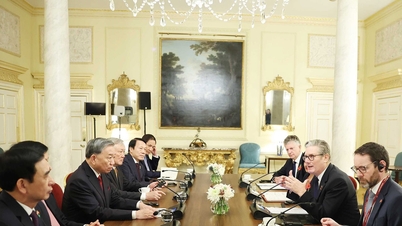

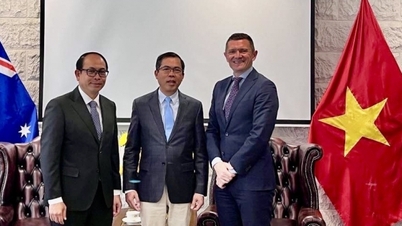

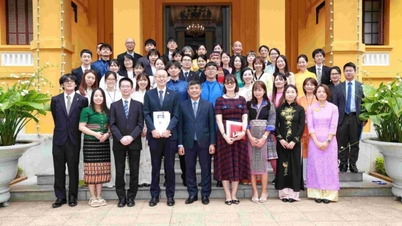
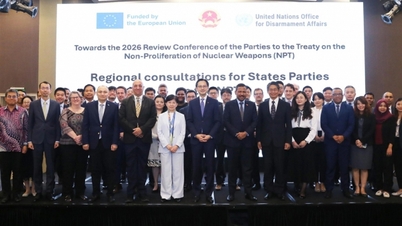
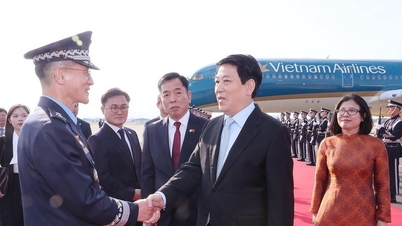
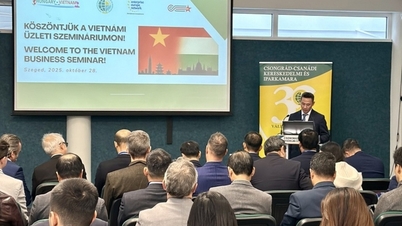




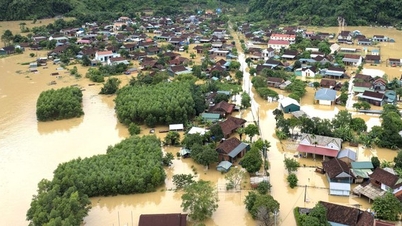
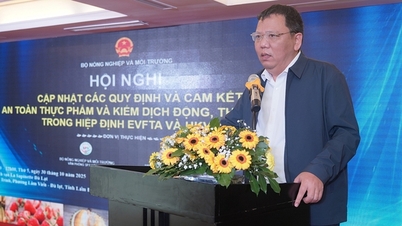

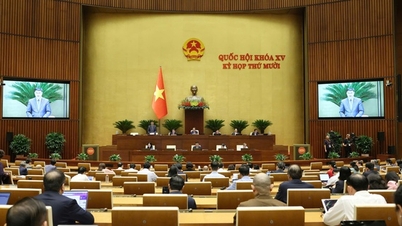


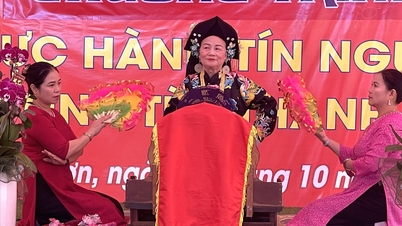




















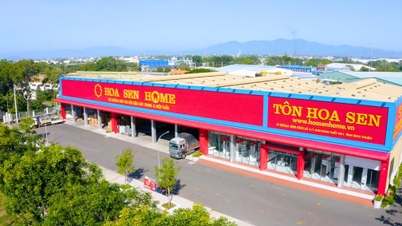

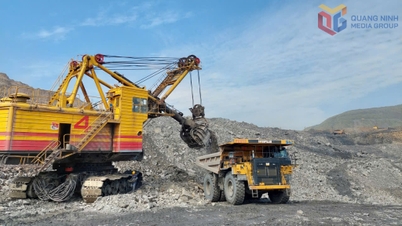





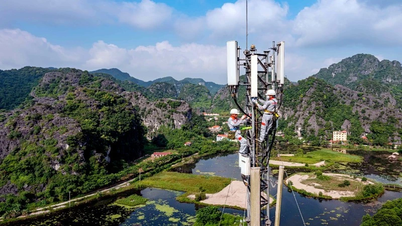








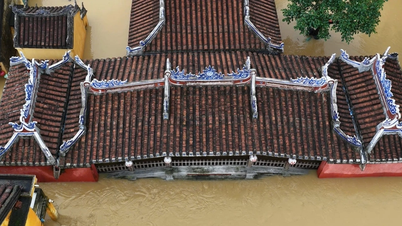

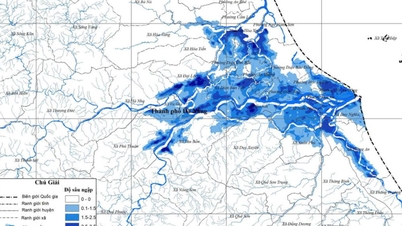





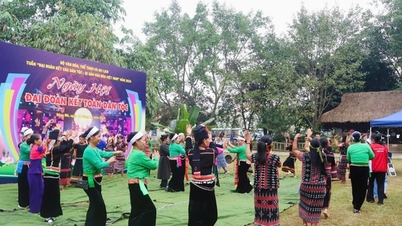
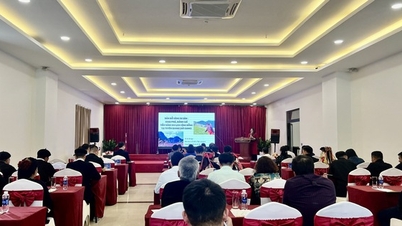

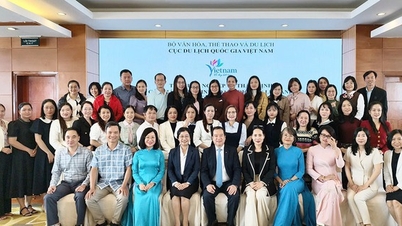
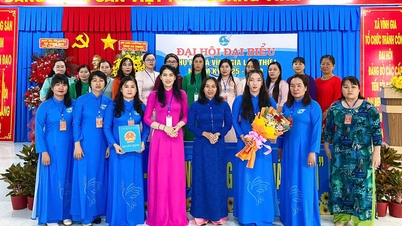

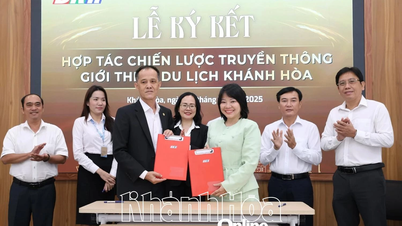




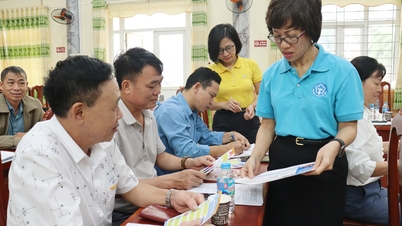


















Comment (0)